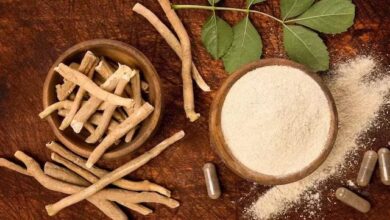Summertime Lifestyle Modifications: 5 Heart-Healthy Foods and Outdoor Activities to Lower Your Cholesterol Level
It’s important to focus on our health, especially our cholesterol levels, as the weather warms and summer draws near. Elevated cholesterol levels may greatly augment the likelihood of heart disease and other grave medical conditions. During the summer, you may significantly improve your heart health and cholesterol levels by implementing little lifestyle modifications. These easy lifestyle tweaks can help you lower your cholesterol and enhance your general well-being this summer, from drinking enough of water to selecting heart-healthy meals.

Drink Water to Remain Hydrated
Being hydrated is one of the easiest, but most powerful, strategies to lower your cholesterol. Maintaining appropriate cholesterol levels may be aided by drinking enough water, which also helps to wash out impurities and assists in food digestion. It’s important to stay hydrated throughout the day in the summer, when temperatures spike and dehydration is more likely. To keep your body adequately hydrated and your cholesterol levels under control, choose water over sugary beverages or sodas.
Accept Outdoor Activities
Enjoy the longer days and nicer weather by going outside and doing things. Frequent physical activities that increase HDL (good) cholesterol and decrease LDL (bad) cholesterol include swimming, cycling, running, and walking. On most days of the week, try to get in at least 30 minutes of moderate-intensity exercise. You’ll raise your general fitness level and mood in addition to your cholesterol levels.
Select Foods That Are Heart-Healthy
Adding in fresh, in-season fruits and vegetables to your diet is ideal throughout the summer. These nutrient-dense meals are good for your heart health in addition to being tasty. Choose vibrant produce such as tomatoes, peppers, leafy greens, and citrus fruits like melons, berries, and citrus fruits. are foods rich in omega-3 fatty acids as well, since these may help decrease inflammation and triglyceride levels. Examples of these foods are salmon, walnuts, and flaxseeds.
Cut Back on Trans and Saturated Fats
Think carefully about the meals you eat at summertime get-togethers and barbecues. Eat less fatty meats, fried meals, and processed baked goods—items rich in saturated and trans fats. Rather, go for lean protein sources like skinless chicken, fish, and lentils, and prepare them using healthy techniques like baking, grilling, or steaming. Increasing the amount of plant-based foods in your diet may also help decrease cholesterol and strengthen your heart.
Control Your Stress and Get Enough Sleep
Stress and sleep deprivation may negatively impact general health and cholesterol levels. Prioritize taking care of yourself by learning stress-reduction methods like deep breathing, yoga, and meditation. Aim for 7 to 9 hours of good sleep every night since less sleep might interfere with your body’s normal functions, such as the metabolism of cholesterol. To encourage improved sleep hygiene, establish a nightly routine and create a relaxing sleeping environment.







